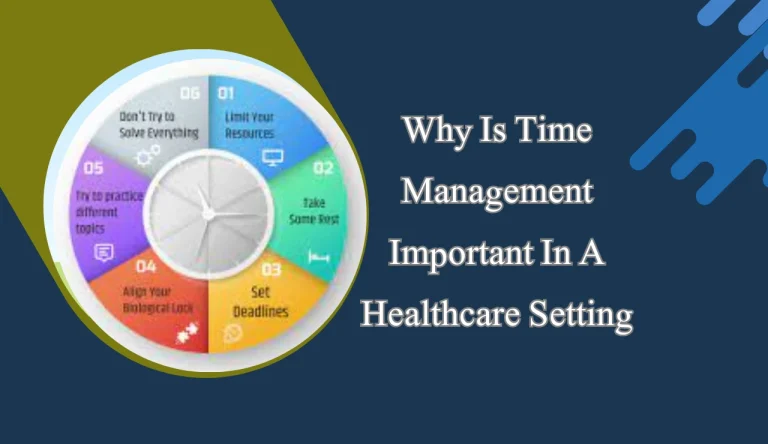Why Is Time Management Important For Students
You may think that as a student, you have all the time in the world. But let’s face it, managing your time effectively is crucial for your success. You might argue that you work better under pressure or that you can finish tasks at the last minute. Why Is Time Management Important For Students? effective time management is more than just meeting deadlines; it’s about setting yourself up for long-term success and reducing stress along the way.
As a student, there are numerous demands on your time – assignments, exams, extracurricular activities, social engagements – and without proper organization, it’s easy to feel overwhelmed. By implementing good time management practices, you can set clear goals, prioritize tasks, and create a schedule that allows you to make the most of each day.
In this article, we will explore why time management is important for students like yourself. We’ll discuss practical strategies such as breaking tasks into smaller chunks and avoiding procrastination. Additionally, we’ll highlight helpful tools and techniques to assist you in staying focused and productive.
So let’s dive in and discover how effective time management can lead to academic success and personal growth! time management is also important for workplace.
Key Takeaways
- Effective time management is crucial for student success.
- Proper organization is necessary to avoid feeling overwhelmed.
- Implementing time management practices helps set clear goals and prioritize tasks.
- Creating a schedule or timetable guides academic achievement.
Set Clear Goals and Prioritize Tasks
You need to set clear goals and prioritize tasks if you want to stay focused and make the most out of your limited time as a student. Effective planning is crucial in managing your time effectively.
By setting clear goals, you can identify what needs to be accomplished and create a roadmap for success. Prioritizing tasks ensures that you tackle the most important ones first, maximizing efficiency and productivity.
With efficient studying, you can allocate dedicated time to each subject or task, allowing for better retention of information and improved learning outcomes. Time management skills also help in avoiding procrastination, reducing stress levels, and maintaining a healthy work-life balance.
By implementing these strategies, you can optimize your time as a student and achieve academic success while still having time for other activities.
Create a Schedule or Timetable
Creating a schedule or timetable is like crafting a blueprint for success, guiding you on your journey towards academic achievement.

By allocating specific time slots to different tasks and activities, you can effectively manage your time and maximize productivity. Time blocking is a technique where you divide your day into blocks of time dedicated to specific tasks. This helps prevent procrastination and ensures that each task receives the attention it deserves.
Additionally, conducting regular time audits allows you to evaluate how you are spending your time and make necessary adjustments to improve efficiency. By keeping track of how much time you spend on various activities, you can identify areas where you may be wasting valuable minutes and redirect your focus towards more important tasks.
Creating a schedule or timetable empowers you to take control of your time, enabling you to accomplish more while maintaining a healthy work-life balance.
Break Tasks into Smaller, Manageable Chunks
To make your workload more enjoyable and achievable, break tasks into smaller, manageable chunks. This technique, known as time chunking or task prioritization, is a valuable tool for effective time management. By dividing your tasks into smaller pieces, you can approach them one at a time, reducing the overwhelming feeling of having too much on your plate.
Breaking tasks down also allows you to prioritize them based on their importance and urgency. You can allocate specific time slots for each chunk of work and focus solely on that particular task during that period. This method not only helps in completing tasks efficiently but also enhances your productivity by eliminating distractions and promoting better focus.
So start breaking down those big assignments or projects into smaller, manageable chunks and see how it makes a significant difference in managing your time effectively.
Avoid Procrastination and Stay Focused
Stay on track and resist the temptation to put off tasks by maintaining a laser-like focus on your goals. Overcoming distractions and developing self-discipline are essential for effective time management as a student. When you procrastinate, you waste valuable time that could be spent on studying or completing assignments. To avoid this, it’s important to identify potential distractions, such as social media or excessive noise, and find ways to minimize their impact. Creating a study schedule and setting specific goals can help you stay focused and motivated. Additionally, developing self-discipline is crucial in managing your time effectively. This means practicing good habits like setting deadlines for yourself and sticking to them, prioritizing tasks based on importance, and avoiding unnecessary time-wasting activities. By staying focused and disciplined, you can make the most of your time as a student.
| Distractions | Impact | Solutions |
|---|---|---|
| Social media | Time-consuming | Limit usage during study sessions |
| Excessive noise | Difficulty concentrating | Use noise-cancelling headphones |
| Procrastination | Delayed task completion | Break tasks into smaller steps |
By identifying common distractions and finding strategies to overcome them, you can develop better self-discipline and improve your ability to manage your time effectively as a student.
Learn to Say No and Set Boundaries
Developing the ability to say no and set boundaries is crucial for maintaining focus and achieving your goals as a student. Learning to delegate tasks allows you to prioritize your time effectively and avoid becoming overwhelmed with an excessive workload.

By saying no to non-essential commitments, you can create space in your schedule for important tasks and activities that align with your academic and personal goals. Setting boundaries helps establish a healthy work-life balance, ensuring that you have time for both studying and relaxation. It allows you to protect your energy levels, prevent burnout, and maintain a sustainable pace throughout the semester.
Read More: What Insurance Do I Need For A Dog Grooming Business
Remember, it’s okay to say no when necessary and set boundaries that support your academic success and overall well-being.
- Delegate tasks
- Prioritize important commitments
- Protect energy levels
Utilize Time-Management Tools and Techniques
Use tools and techniques like calendars, schedules, and timers to tactically tackle tasks and triumph over time.
Effective techniques for managing time include creating a daily or weekly schedule that outlines your commitments and deadlines. This allows you to prioritize tasks and allocate the necessary time for each one.
Additionally, using time tracking tools can help you understand how you spend your time and identify areas where you may be wasting it. These tools allow you to track the amount of time spent on specific activities, helping you become more aware of any patterns or inefficiencies.
By utilizing these tools and techniques, you can better manage your time as a student, ensuring that you stay organized, meet deadlines, and have enough time for both academic responsibilities and personal activities.
Take Breaks and Practice Self-Care

Now that you’ve learned about utilizing time-management tools and techniques, let’s explore another crucial aspect of time management for students – taking breaks and practicing self-care. This is just as important as managing your time effectively because it allows you to recharge and maintain a healthy mindset.
When it comes to self-care benefits, taking regular breaks can improve your focus, productivity, and overall well-being. It gives your brain the opportunity to rest and rejuvenate, making it easier to absorb information when you return to studying.
To make the most of your breaks, here are four effective break strategies you can try:
- Engage in physical activity or exercise.
- Practice mindfulness or meditation techniques.
- Connect with friends or loved ones.
- Pursue hobbies or activities that bring you joy.
By incorporating these strategies into your study routine, you’ll not only enhance your time management skills but also prioritize your mental health and overall success as a student.
Frequently Asked Questions
Conclusion
In conclusion, time management is crucial for students in order to succeed academically and maintain a healthy work-life balance.
By setting clear goals and prioritizing tasks, creating schedules, breaking tasks into smaller chunks, and avoiding procrastination, students can effectively manage their time.
Learning to say no and set boundaries is also important in managing time.
Utilizing time-management tools and techniques can further enhance productivity.
Remember to take breaks and practice self-care to avoid burnout.
With proper time management skills, you can maximize your potential and achieve your goals.






